Stefanie Almazan Delfini won the SGEB-Master-Award 2018 for an outstanding Master’s thesis for her investigation into the variation in stresses at the base of a rock column as ice melts from a joint on the back. Below is a quick overview of the study that will be presented at the EGU General Assembly in Vienna this year. […]
Read More...stress-driven
Geohazard information for the masses
Category: Projects (page 1 of 5)
(*pun intended) The failure of natural rock slopes, or engineered bedrock structures (e.g. tunnels, caverns, mines, and excavations) is closely tied to the progressive fracturing of intact rock. The physics of this process is, however, complicated – and even in engineered materials such as glass and steel, the interaction of conditions driving the propagation of cracks is […]
Read More...Candidate: Open Supervisors: Kerry Leith, Jordan Aaron, Simon Allen (UZH) Institution: University of Zurich, ETH Zurich Activity: Beginning Fall 2018 Introduction Undercutting of rock slopes by either (river or glacier) erosion or highway construction commonly leaves overhanging unstable blocks that collapse after a period of time, endangering people and property, and changing the local geomorphological environment. When bedding or foliation dips […]
Read More...Candidate: Open Supervisors: Kerry Leith Institution: ETH Zurich Activity: Beginning Fall 2018 In late August 2017 moderately-sized rockfall occurred on a south-facing rock wall above the popular Gelmersee hiking trail (immediately north of Grimsel Pass), leaving six people injured. Although the occurrence of such rockfalls in alpine regions is unsurprising, the location, geological setting, and timing of this […]
Read More...Recently, my co-authors and I published a rather controversial article entitled ‘Signatures of Late Pleistocene fluvial incision in an Alpine landscape‘ in Earth and Planetary Science Letters (Volume 483, Leith et al., 2018). In this post we summarise the main outcomes, and look into a part of the backstory that never made it to print. […]
Read More...Do glaciers really do all the work? Opinions are divided, but here’s a chance to make up your own mind! Our new paper with @apatite4life and @UtahGeohaz is finally out in EPSL https://www.sciencedirect.com/science/article/pii/S0012821X17306945
This week the Swiss Geoscience Meeting will be hosted by the Snow and Avalanche Research SLF and the Platform Geosciences of the Swiss Academy of Sciences in Davos, Switzerland. The meeting offers a great chance to keep in touch with scientists from across the country with broad interdisciplinary interests. This year we’ll be presenting work from an environmentally-driven […]
Read More...Candidate: Marco Zapata Torres Supervisors: Kerry Leith, Jordan Aaron, Simon Allen (UZH) Institution: University of Zurich, ETH Zurich Activity: Beginning Spring 2018 Introduction Undercutting of rock slopes by either (river or glacier) erosion or highway construction commonly leaves overhanging unstable blocks that collapse after a period of time, endangering people and property, and changing the local geomorphological environment. When bedding or […]
Read More...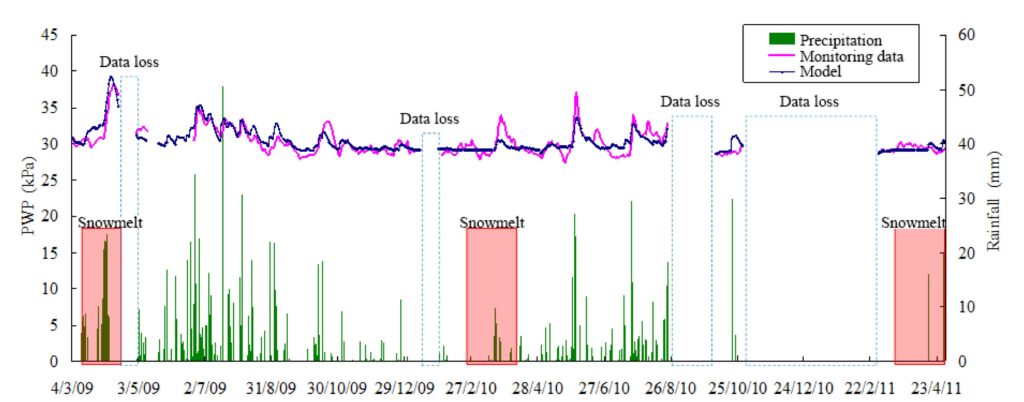
A compilation of meteorological observations, pore water pressure measurements, and the model results.
A new paper describing a simplistic model for the evaluation of landslide hydrology (with very limited data): Nie, W., Krautblatter, M., Leith, K., Thuro, K., Festl, J., (2017) A modified tank model including snowmelt and infiltration time lags for deep-seated landslides in alpine environments (Aggenalm, Germany), Nat. Hazards Earth Syst. Sci.
Frost wedging describes the process by which pressure from the expansion of freezing water in pre-exising fractures generates sufficient tensile stress to propagate the crack further into intact rock. Although this seems like a reasonably common sense interpretation (given the transition from water to ice involves a 9% expansion that’s often associated with the bursting […]
Read More...© 2024 stress-driven
Theme by Anders Noren — Up ↑
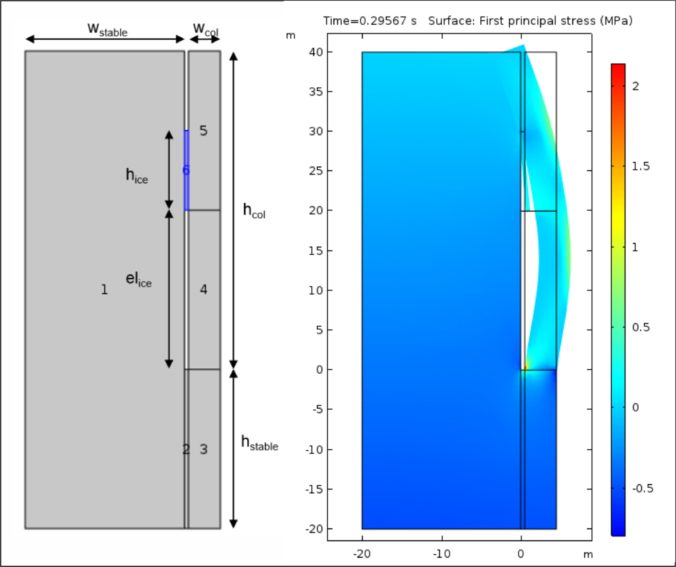
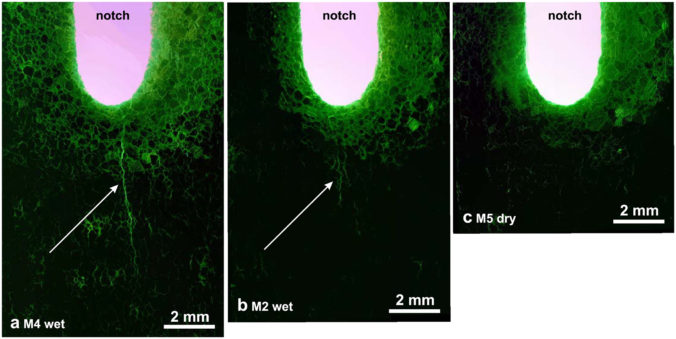
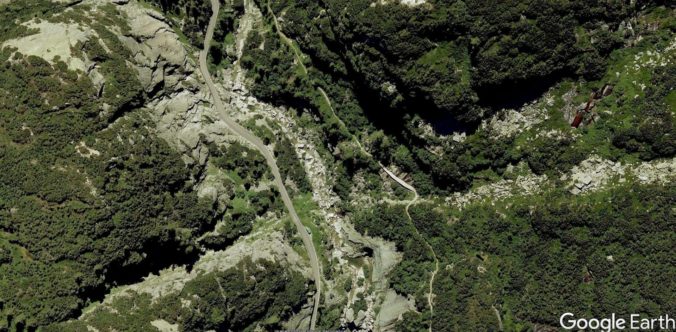
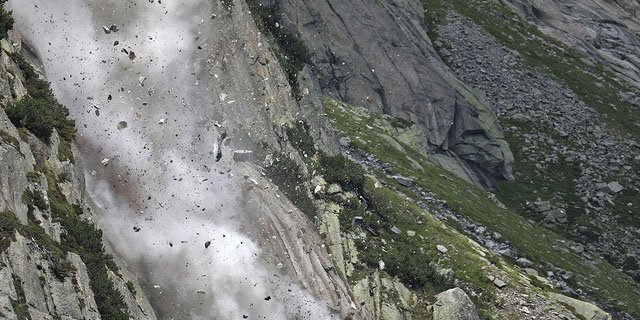
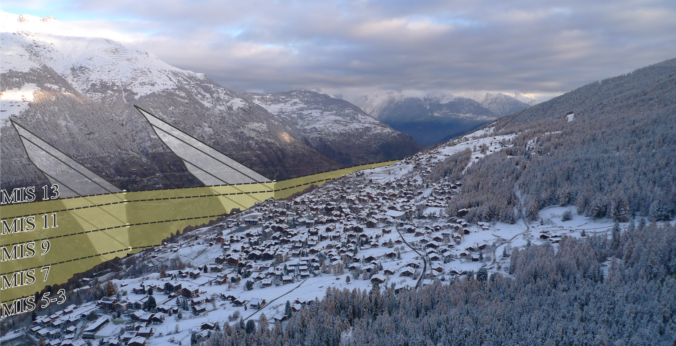
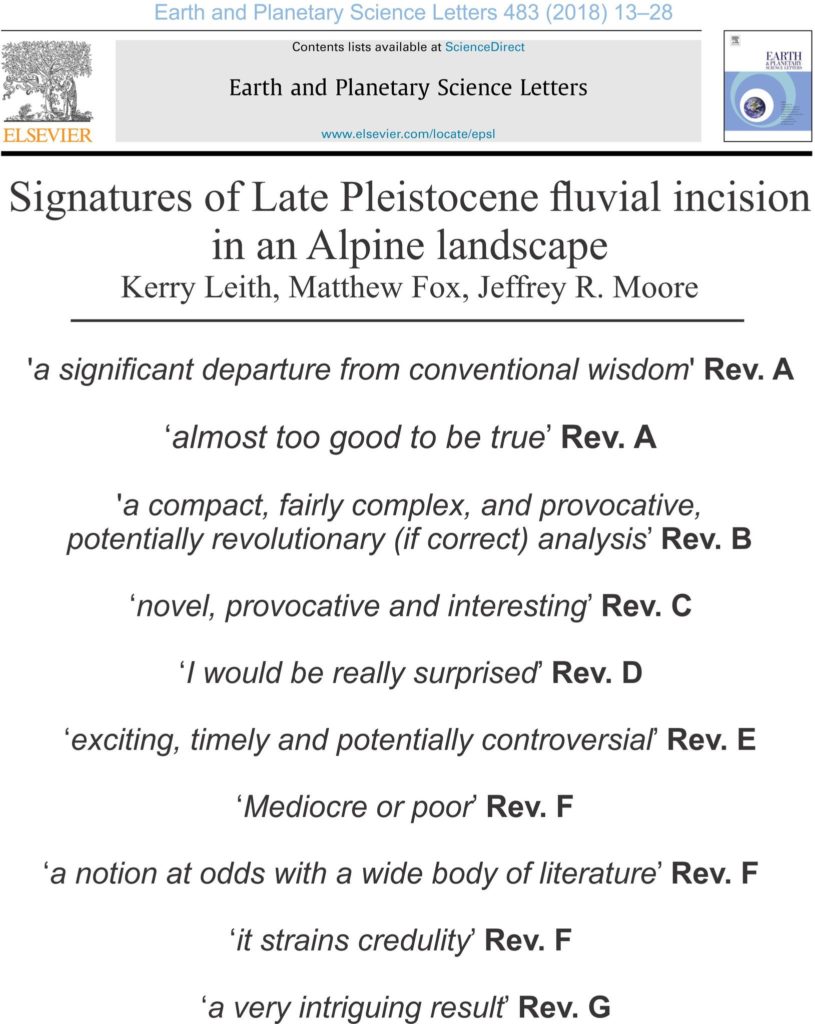
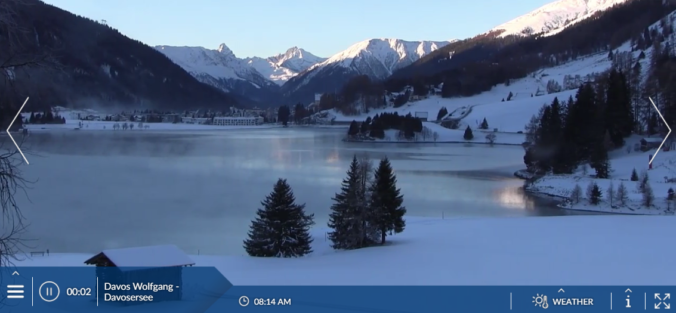
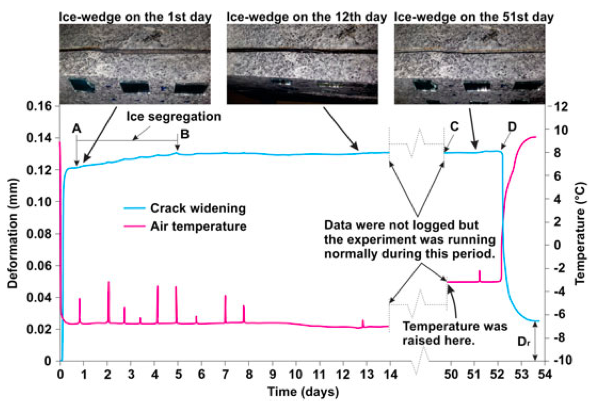

Recent Comments